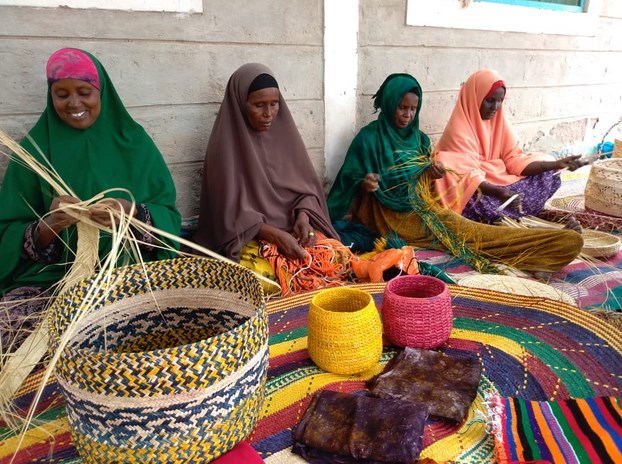
Tuesday September 3, 2019
A group of 50 Somali women refugees producing traditional handicrafts in the Dadaab refugee camps in northeastern Kenya is becoming self-reliant through the promotion of of Somali culture.
advertisements
The group, called Yote Farsamo (meaning ‘all technical’ in a mix of Swahili and Somali), are weaving traditional mats, baskets, hats, fans, hand-woven traditional garments, and sieves for sale.Having started the enterprise last year, the group is now making a monthly average income of $5,000 that is divided among the members.
“We get enough money from these items to support our children. We use the money to buy school uniforms for our children,” said Safiya Hersi.
Safiya joined the group after being trained in traditional weaving. As well as making a decent living, she believes their work promotes Somali culture that might otherwise be forgotten.
“We are also re-igniting our traditional way of life!” stated Safiya.
Barni Ali Mohamed, another member, said being part of the group has made her self-reliant. Her husband earns an irregular income doing casual work. She is able to put food on the table and pay the school fees.
“This is the only livelihood I have right now. My 14-member family can’t survive on the little aid we get from the agencies. I use the income from this centre to feed the family,” said Barni, who learnt to weave as a girl growing up in rural Somalia.
“When we were taught these skills by our mothers, it was mandatory cultural preservation. The apprenticeship was handed down from mothers to daughters. Now I can see how useful that training was,” she said.
Adar Haji Abdi, the group’s chairperson, told Radio Ergo that the business had expanded and they were selling to shops and at upmarket events in Nairobi.
“When Somali people see our work, they feel proud,” Adar said. “Lots of Somalis from the diaspora have bought our mats, which means the business has pleased Somali people.”
